Source: www.bbc.co.uk/persian
Translation by Iran Press Watch
By Kambiz Fattahi
May 14, 2015
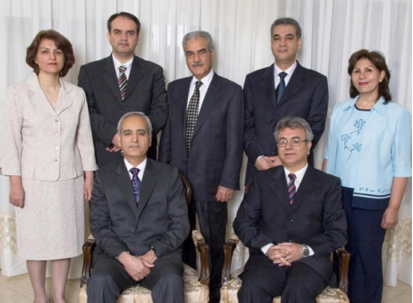
At the seventh year anniversary of the detention of the leaders of the Baha’i community of Iran, Mahnaz Parakand, one of the three attorneys who defended them, tells BBC Persian that her clients’ trial proceedings were compromised and the accusations against them were unfounded.
Fariba Kamalabadi, Mahvash Sabet, Behrouz Tavakoli, Jamaloddin Khanjani, Afif Naeimi, Saeid Rezaie and Vahid Tizfahm were members of a committee called the Yaran (“Friends”) that was in charge of managing the affairs of the Baha’i minority.
Six of them were arrested in May 2008 during simultaneous raids by security forces on their homes. One of them (Mahvash Sabet) had been arrested in Mashhad previously, in early March 2008.
After nearly two and half years solitary confinement and interrogations that were conducted in Ward 209 of Evin Prison, without the presence of attorneys or any legal advice, in August of 2010 Judge Mohammad Moghiseh ‒ head of Branch 28 of the Revolutionary Court of Tehran ‒ sentenced each of them to 20 years imprisonment.
Arrest of a group and the closed-door trial of the leaders of one of the largest non-Muslim religious minorities in Iran (1) were condemned by the United States, the European Union and the United Nations. However, Iranian officials considered these protests unjustified.
In reaction, Gholamhossein Elham, the Government spokesperson, once said: “Making a big deal of an issue named Baha’iyat” is an old tactic. In his words ”This phenomenon is a systematic organization which is connected to foreigners, particularly Zionists.” (2)
‘A Sensitive Case’
Throughout the trial of these individuals, three attorneys were present in court: Mahnaz Parakand, Abdolfattah Soltani and Hadi Esmailzadeh. Mr. Soltani and Mr. Esmailzadeh have since been sentenced to imprisonment and banned from practicing law. Ms. Parakand announced a few years ago that the fear of beting arrested has caused her to leave Iran and seek political asylum in Norway.
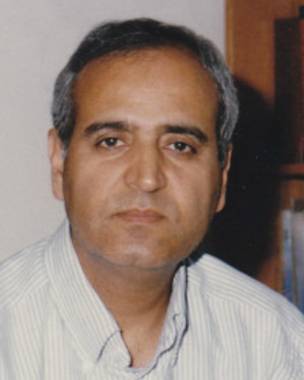
Invited by the Baha’i Community of the United States, Mahnaz Parakand travelled to Washington this week to speak about her clients in meetings with Amnesty International and the United States Congress.
Ms. Parakand tells BBC Persian: “There was a lot of sensitivity in this case. Considering the contents of the case and the accusations against these individuals, it seemed as though the Iranian Government intended to close the case of the Baha’i community in Iran. For example, they considered the formation of the Baha’i community to be a crime.”
She adds: “When was the Baha’i community formed? The Baha’i community was formed 168 years before these individuals were tried… These people have just realized now that this group is against the security of the country? If you mention this to anyone in his right mind – even if it is not a legal mind – he will realize that this accusation is completely made up.”
She remembers: “When they were issuing the indictment against them, they had added “battle” and “corruption on earth” to the number of accusations against them, based on a religious decree they had obtained from Ayatollah Makarem Shirazi (4), and had demanded death sentences for them.”
The defendants faced serious charges in court, including “espionage”, “propaganda against the State” and “formation and expansion of an illegal organization”.
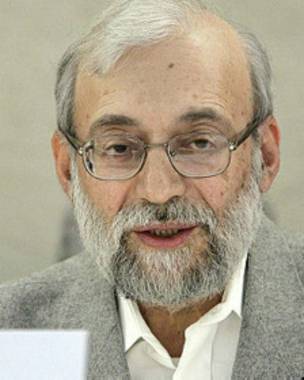
Other charges were: “collaboration with the usurper, occupying Zionist Regime”, “cooperation in collecting classified documents and exposing them to foreigners with the purpose of endangering national security”, ”collusion and meeting for the purpose of acting against the internal and external security of Iran”, “tarnishing the image of the Islamic Republic of Iran” and “corruption on earth” (5).
The Yaran’s attorney says that the first time judiciary officials allowed her colleagues and her to study the indictment and take notes was approximately a month before the commencement of the trial. Ms. Parakand says none of the charges had legal justification, nor had she found any convincing reason or evidence in the files.
For example, regarding the charge of “meeting and collusion for the purpose of acting against national security” she says: “these people (Baha’is) have a religious tradition of assembling every 19 days, which is called the Feast. They get together, pray, have tea, coffee and cookies and it is done. The Court considered these Feasts to be ‘meeting and collusion for the purpose of acting against national security’”.
Ms. Parakand adds: “Or one of the items mentioned regarding the charge of “relations with foreigners or relations with enemy states” was a meeting between two of the defendants and Galindo Pohl (the United Nations Special Rapporteur on human rights in Iran in 1983/84) (3). The Yaran had protested the fact that Baha’is had been denied the right to obtain passports, and faced difficulties in obtaining marriage and divorce licenses. They had asked him to remind and persuade the government of the Islamic Republic to respect their human rights.”
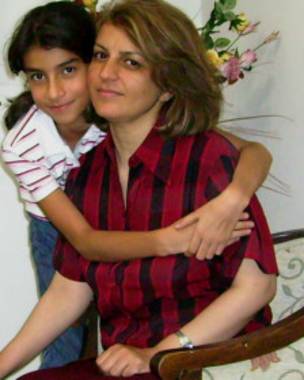
Ms. Parakand says that she was allowed to have a 20-minute meeting with some of the defendants only once before the trial started. After at least three trial sessions, Judge Moghiseh sentenced each defendant to 20 years imprisonment, 10 years for “forming a group” and 10 years for “espionage”.
During the appeals process at Branch 54 of the Islamic Revolutionary Court presided over by Judge Movahhed, the “espionage” charge was dropped and the sentences were reduced to 10 years each. However, as Mahnaz Parakand says, in the end the sentences of the original trial were retained and “they told us that based on an order from the head of the Judiciary Branch (6) regarding the illegal nature of the appeals court sentencing, the District Attorney had demanded a re-trial and the sentences were changed back to 20 years each.”
Ms. Parakand believes: “There are different factions in Iran. I believe there were disagreements among them at the time. Some wanted the sentences not to be too severe but others wanted severe sentences.”
Prohibition from furloughs
Within the past seven years, except on one occasion – Vahid Tizfahm was given a three-day furlough from Rajai Shahr Prison – none of the other members of this group have been granted temporary furloughs from prison.
The Khanjani family says that even when Jamaloddin Khanjani’s older sister, and later his wife died, officials denied his requests for short furloughs to attend their funerals.
According to one of his relatives, the 82-year old Mr. Khanjani has a heart condition (7), and the 20-year imprisonment may well be a life sentence for him.
Bijan Masoumian, a close relative of Mahvash Sabet who lives in Texas, also tells BBC Persian that Mrs. Sabet has been suffering from osteoporosis for a long time, which “naturally gets worse with age.”
He says, after falling in the courtyard of the prison about a year ago, Mrs. Sabet was hospitalized at Pars hospital for a while.
The international community’s concerns regarding the situation of the Baha’is in Iran, is not limited to health conditions or the continuing imprisonment of the former leaders.
In several reports, Ahmad Shahid ‒ the current United Nations Special Rapporteur on human rights ‒ has accused the Islamic Republic of Iran of systematic civil rights violations of the Baha’i minority.
In his latest report, Mr. Shahid wrote: “ Despite a statement made by Iranian senior officials about Baha’is enjoying equal civil rights, [in fact] Baha’is are still faced with discrimination, arrests and arbitrary imprisonment with respect to their religion.”
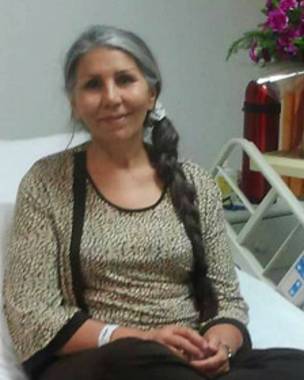
The Islamic Republic of Iran does not acknowledge the Baha’i Faith as a religion, and describes it as a “misguided sect”. However, it emphasizes that reports by the United Nations and many other organizations, such as Amnesty International and Human Rights Watch about widespread discrimination against Baha’is are “pure lies”.
In this regard, Mohammad Javad Larijani, the Secretary of the Human Rights Council for the Judiciary Branch (8), clearly announced some time ago that in Iran, no one is tried or denied an education due to being a Baha’i.
However, Simin Fahandej – a representative of the Baha’i World Community at the United Nations – states that these statements are untrue.
Ms. Fahandej says: “We still have 110 Baha’is in prison. Baha’i youth are still deprived of education. Generally, we have not seen any change with respect to Baha’is in the last two years.
This spokesperson for the Baha’i World Community demands the immediate release of the seven former leaders of this minority in Iran.
Their former attorney also says that according to the new Islamic Penal Code, those who have been sentenced to 10 or fewer years of imprisonment are subject to conditional release after serving a third of their sentences.
Mahnaz Parakand says: Our only hope is that with the implementation of Article 134 of the new Islamic Penal Code collective punishments would be removed…. If only one of their sentences is carried out, we can think of conditional release.”
1. This is a factual error. According to Wikipedia (http://en.wikipedia.org/wiki/Religion_in_Iran): “The Bahá’í Faith, Iran’s largest non-Muslim religious minority, is not officially recognized, and has been persecuted during its existence in Iran.”
2. A detailed discussion of the origin of this charge and the actual situation can be found at this site: http://www.washingtoninstitute.org/policy-analysis/view/the-bahais-of-iran-and-contact-with-foreign-nations
3. See http://en.wikipedia.org/wiki/Reynaldo_Galindo_Pohl
4. A short bio of Ayatollah Naser Makarem Shirazi can be found here: http://en.wikipedia.org/wiki/Naser_Makarem_Shirazi
5. The “corruption on earth” (mufsid fi’l-ard) charge is based on a Qur’anic phrase, but is used as a legal charge only in the Islamic Republic of Iran. A description is here: http://en.wikipedia.org/wiki/Mofsed-e-filarz
6. At that time (2008) the Head of the Judiciary Branch was Mahmoud Hashemi Shahroudi; a short bio can be found at http://en.wikipedia.org/wiki/Mahmoud_Hashemi_Shahroudi
7. Jamaloddin Khanjani and his family have repeatedly been targeted for persecution; a recent example — the demolition of his ancestral home — plus mention of the threats to his health from prison conditions, can be found here: http://www.iranhumanrights.org/2015/04/police-demolish-imprisoned-bahai-home/
8. A short bio of Mohammad Javad Larijani can be found here: http://en.wikipedia.org/wiki/Mohammad-Javad_Larijani
Leave a Reply